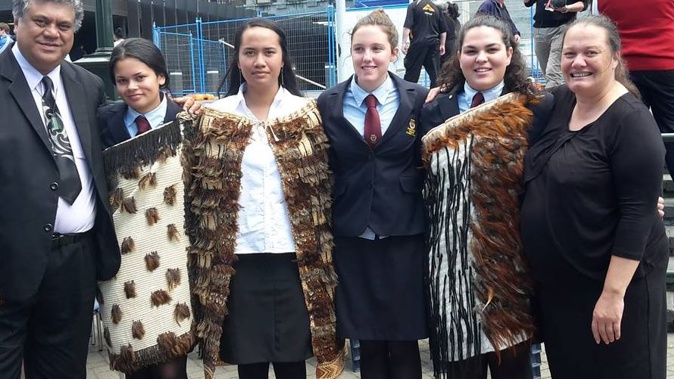
College students' shock at the burning to death of residents of a Waikato village is at the heart of the annual day to remember the New Zealand Wars.
Today is the first Raa Maumahara National Day of Commemoration for the wars, which will be marked every year on October 28.
The wars were fought from 1843 to 1872 between many Maori groups on one side, and on the other, British and New Zealand forces supported by other Maori allies.
A 12,000-strong petition to Parliament organised by Otorohanga College students and staff calling for a national commemoration day sparked widespread support and built on the efforts of iwi and community groups since 2010.
Students Leah Bell and Waimarama Anderson began the petition in 2014 after attending the 150-year commemoration events of the invasion of Rangiaowhia and the Battle of Orakau.
They were moved by hearing from descendants of people from the largely undefended village of Rangiaowhia, near Te Awamutu, which was attacked by British forces on February 21, 1864. Buildings were burned with people inside them.
Historian Vincent O'Malley, author of The Great War for New Zealand, Waikato 1800-2000, said Rangiaowhia was a refuge for women, children and the elderly.
"I argue in my book that the evidence that people were deliberately torched to death is clear and unambiguous."
Bell, now a university student, said the British forces broke the rules of engagement. It was "a horrendous story to hear and the grief was still very real with the people. We felt that, and witnessed it in a concentrated environment when hearing the stories from the descendants of the people of Rangiaowhia."
The wars were fought in Marlborough, Wellington, Northland, Taranaki, Waikato, Tauranga, Whanganui, and on the North Island's east coast and central plateau. It has been estimated that more than 3000 people died, but O'Malley believes the toll, although hard to calculate accurately, was probably higher.
His study of the Waikato War found the casualty rate per head of population was probably higher than New Zealand suffered in World War I, considered the country's "greatest bloodbath".
O'Malley said the New Zealand Wars re-shaped the country. After the mid-1860s the Treaty of Waitangi was "thrown out the window" for at least a century, there were huge changes in demographics and the ethnic power balance, and generations of Maori were condemned to landlessness and poverty.
Of the commemoration day, he said: "I think it's a big step in the maturing of our nation. It's a recognition that we need to acknowledge that these pretty difficult episodes from the past are a part of our nation's story."
The last Government set aside $4 million over four years to support regional New Zealand Wars commemoration events throughout the year and national events every October 28, including today's E Rima Challenge multisport event in Northland.
Otorohanga College English teacher and petition organiser Mariana Papa said the new Government would be lobbied to make the day a public holiday.
Take your Radio, Podcasts and Music with you









